Femia > Health Library > Getting Pregnant > Planning pregnancy > Odds of getting pregnant by age chart: Fertility and pregnancy chances explained
Odds of getting pregnant by age chart: Fertility and pregnancy chances explained
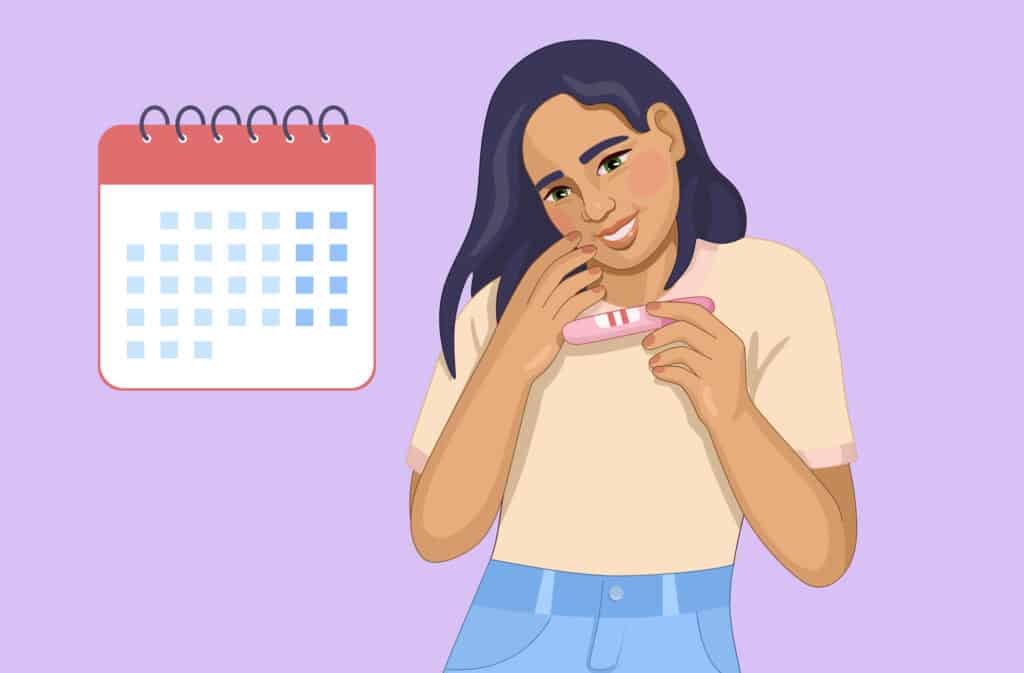
- Updated Feb 10, 2025
- Published
CRAFTED BY HUMAN
Crafted by human At Femia, we provide accurate and up-to-date information at every stage of your journey, from trying to conceive, pregnancy and postnatal support. All content is created by a real person based on in-depth research and own professional experience. Femia ensures that you will receive expert advice, strict accuracy and a personalized approach from our authors/medical experts. Learn more about our editorial policy.
FACT CHECKED
Fact checked At Femia Health, we maintain the highest standards of editorial excellence in delivering content focused on helping you conceive, guiding you through pregnancy, and supporting you postpartum. Explore our content review principles to learn how we ensure the accuracy and quality of our health and lifestyle tips for every stage of your journey.
Fertility naturally declines with age. Women are born with a fixed number of eggs, and both the quantity and quality of these eggs diminish over time. The odds of getting pregnant by age chart shows a sharp decline once you reach your mid-thirties. That said, you might be able to increase your fertility with lifestyle interventions and assisted reproductive technology (ART) like in vitro fertilization (IVF).
A few decades ago, having your first baby at the age of 35 was a rare scenario. Nowadays, it’s far more common, as starting a family is something more women are taking their time doing. As society progresses to grant women more freedom, some ladies choose not to become mothers during the all-over-the-place twenties.
However, as much as society may’ve changed, our biology hasn’t followed suit. The clock of nature is ticking – and things get complicated as women age. Having a clear understanding of how your fertility changes over time allows you to take control of your reproductive health and make informed decisions about expanding your family. So, let’s discuss the age-related decline in your fertility and the odds of pregnancy by age.
Why age matters for fertility
Why is it hard to get pregnant in your forties and fifties? As women age, so do their ovaries and the eggs inside them. You may not feel any changes, but they happen at a fast pace. Keep reading to learn your chance of pregnancy by age.
Unlike men, women are only fertile for a certain period of their lives. Fertility starts in the teenage years (with your first period) and significantly drops during the late thirties. Most women go into menopause in their early fifties.
As a woman, you are born with all the eggs you will ever have. These eggs tend to deteriorate as the years go by – at least a few go to waste each month you don’t get pregnant. A woman in her twenties has a 25–30% chance of getting pregnant every month, while a woman in her forties only has about a 5% chance of conceiving in any monthly cycle.
👉Find out more: Fertility diet: What to eat to boost your chances of getting pregnant
Female fertility age chart: Understanding fertility by decade
What happens with your eggs over time? Let’s talk numbers: take a look at this female fertility age chart at different points in time.
Female babies are born with about 1 to 2 million eggs. By the time puberty starts, there are only 300,000 to 500,000 eggs left. The number drops quickly to 25,000 at age 37 and to just 1,000 at the age of 51.
Woman's age
| Pre-birth (20 weeks) | At birth | Puberty | Late thirties | The early fifties | |
|---|---|---|---|---|---|
| Number of eggs | 6 to 7 million | 1 to 2 million | 300,000 to 500,000 | 25,000 | 1,000 |
Why do your eggs deteriorate? Well, they simply lose viability with age. Chronic conditions, poor reproductive health, and exposure to environmental toxins can speed up the process.
The steep decline in the number of eggs (more precisely, the cells, called “oocytes”) can be seen in the following fertility by age chart.
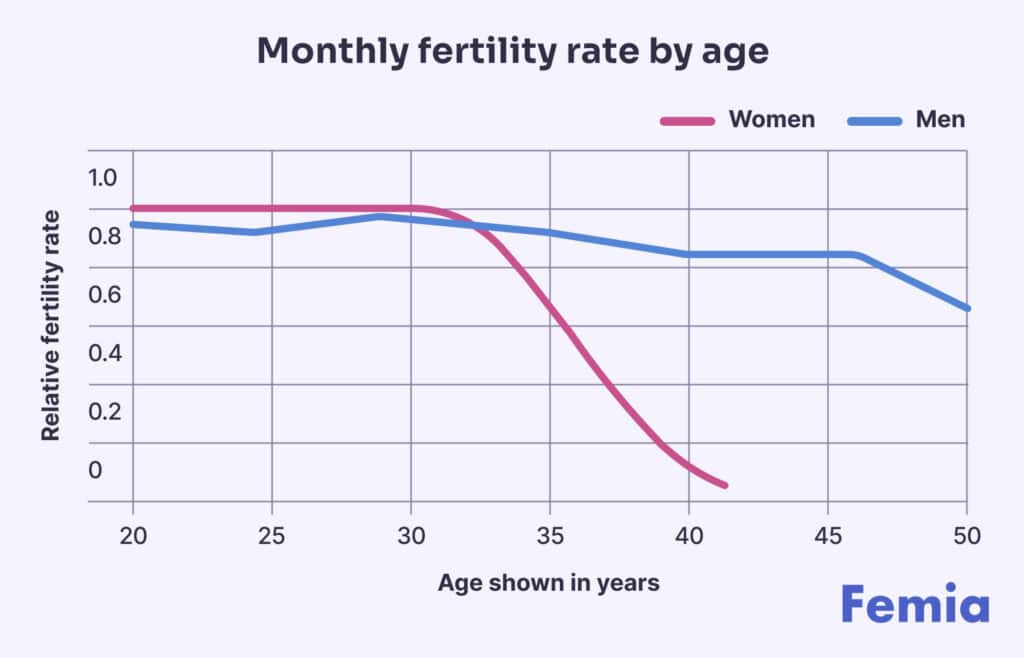
Odds of getting pregnant by age chart
Women in their early twenties have the highest chances of getting pregnant. As eggs deteriorate and fertility decreases, the chances of getting pregnant also decrease. But, don’t lose hope. This is just statistics – and your situation might be different.
Take a look at this odds of getting pregnant by age chart:
| Woman's age | Chance of getting pregnant naturally each month |
|---|---|
| 25 | 25% |
| 30 | 20% |
| 35 | <15% |
| 40 | <5% |
The IVF chances of getting pregnant by age chart look a bit different.
| Woman's age | Chance of getting pregnant by age with one complete IVF cycle* |
|---|---|
| 30 – 34 | 43% |
| 35 – 39 | 31% |
| 40 – 44 | 11% |
*includes all fresh and frozen-thawed embryo transfers following one ovarian stimulation
The success rates increase with more IVF cycles. For older ladies, the chances of getting pregnant increase if using eggs from a younger donor.
Average time to get pregnant by age
Now that you’ve learned the odds of pregnancy by age, you might be wondering about the average time to get pregnant by age.
Although data on the average time to get pregnant is scarce (and very generalized – so take it with a grain of salt), here is a quick overview: if you are between 21 and 24 years old, you have a 57% chance of conceiving within 6 menstrual cycles and a 71% chance of conceiving within a year.
Ladies between the ages of 25 and 27 have a 59% chance of getting pregnant within 6 menstrual cycles and a 79% chance of conception within 12 cycles.
Chances of getting pregnant by age: Factors that influence odds
Whether or not you will be able to get pregnant is not only determined by age – there are other factors. A lot of external contributors can cause fertility problems, including your overall health condition and lifestyle.
- Reproductive system disorders: endometriosis, blocked fallopian tubes, infections, low sperm count
- Hormonal (endocrine) disorders: polycystic ovary syndrome (PCOS), thyroid problems, or disorder of the pituitary gland – a little gland tucked deep inside your brain, which plays a huge part in reproductive health and pregnancy
- Abnormal body weight: obesity, anorexia nervosa
- Unhealthy lifestyle habits: lack of exercise, excessive exercise, poor sleep, unhealthy diet, smoking, drinking alcohol
Fertility treatments and age: What to expect
We know that many women are eager to hold a baby in their arms. Some women, especially those past the age of 35, turn to ART like IVF to get pregnant. For some couples, this may be the right way to conceive.
Here is a more detailed look at IVF success rates after multiple cycles:
| Woman’s age at first IVF cycle | Chance of pregnancy after the first cycle | Chance of pregnancy after the second cycle | Chance of a pregnancy after the third cycle |
|---|---|---|---|
| Under 30 | 43% | 59% | 66% |
| 30 – 31 | 48% | 61% | 67% |
| 32 – 33 | 44% | 60% | 67% |
| 34 - 35 | 40% | 54% | 61% |
| 36 - 37 | 32% | 44% | 50% |
| 38 - 39 | 22% | 32% | 38% |
| 40 – 41 | 13% | 21% | 25% |
| 42 - 43 | 6% | 10% | 11% |
| 44+ | 2% | 5% | 5% |
As you can see in the graph, 32% of women who were aged 36-37 when starting IVF treatment had a baby after 1 IVF cycle. This rate increased to 44% after 2 IVF cycles and to 50% after 3 IVF cycles.
👉Find out more: What foods produce sperm fast: Top sperm-boosting foods for better fertility
Maximizing fertility at different ages
Even if the percentage of getting pregnant for your age group is not high, don’t be discouraged. There are many contributors to getting pregnant – and pregnancy chances by age should be understood as a general review, not something written in stone.
What can you do to boost your fertility at any age?
- Sleep well. To regulate hormones and increase your fertility, try to get 7 to 9 hours of quality sleep each night.
- Stay away from environmental toxins. Chemicals in plastics, pesticides, and pollution can affect fertility. Opt for organic foods, avoid BPA products, and limit exposure to known toxins.
- Prenatal vitamins. If hoping to get pregnant, a prenatal vitamin with folic acid can support a healthy pregnancy.
Here is how you can maximize your fertility at different ages. The chance of pregnancy by age significantly increases if you adjust your lifestyle habits.
Your 20s
Here is how to maintain your peak fertility in your twenties:
- Exercise regularly. And, don’t push too hard. Moderate exercise, such as swimming, cycling, dancing, or doing yoga or pilates, can support fertility and overall well-being when trying to conceive. Intense, high-impact activities like high-intensity interval training (HIIT) or heavy weightlifting cause excessive fatigue and stress on your body and should be avoided.
- Maintain a healthy weight. Aim for a body mass index (BMI) between 18.5 and 24.9. Both underweight and overweight women struggle with ovulation.
- Eat a nutritious diet. Consume foods high in folic acid, omega-3 fatty acids, iron, and calcium to enhance your fertility.
- Avoid smoking and drinking. Both can reduce fertility and meddle with your hormones.
- Track your ovulation. Detect your fertility window by basal body temperature changes, ovulation predictor kits, or apps.
Your 30s
Here is how to boost your fertility in your thirties:
- Plan your sexy time ahead. Have sex during your fertile window, ideally every 1-2 days around ovulation.
- Stress less. We know this is easier said than done, especially when all you want is to get pregnant, as soon as possible. However, chronic stress can affect ovulation. Try relaxation techniques such as mindfulness, yoga, or meditation.
- Don’t go overboard with coffee. Limit yourself to one or two cups of coffee per day, as too much caffeine may affect your hormones.
- Get medical advice. If you’re over 35 and haven’t conceived after 6 months of trying, consider seeing a fertility specialist.
- Consider fertility testing. Since fertility starts to decline in your mid-30s, consider testing for ovarian reserve or partner sperm quality.
Your 40s
Here is how to get the best out of your fertility in your forties:
- Focus on your overall health. Before getting pregnant, think of your own health. Do you struggle with any chronic conditions, like high blood pressure or type 2 diabetes? Getting those under control is crucial for both increasing your fertility and having a healthy pregnancy.
- Eat foods packed with antioxidants. Foods like berries, leafy greens, and nuts can support reproductive health by combating oxidative stress.
- Consult a fertility specialist. Have you been trying for a baby for 6 months already? After 40, it’s important to get personalized advice from a specialist.
- Check your ovarian reserve. Check your AMH (anti-Müllerian hormone) levels to assess your ovarian reserve.
- Consider fertility treatments. Depending on your ovarian reserve and health, IVF may be the best option. Donor eggs can also increase the chances of having a baby.
Questions from Femia community
How does my egg quality change with age?
Both the number and quality of your eggs decrease as you get older. During your mid-thirties, the number of your eggs starts to drop really fast (and you can’t make more of them). By the time a woman reaches her 40s, many eggs may have abnormal chromosomal numbers, increasing the risk of infertility, miscarriage, and genetic disorders such as Down syndrome.
Can I increase my fertility after 35?
Yes, you can increase your fertility after 35, though it can be more challenging. Changing your lifestyle can go a long way: maintain a healthy weight, eat a nutritious diet, and exercise regularly (but not too much!) Try to sleep well and minimize stress. Fertility treatments like ovulation-stimulating medications, IVF, and intrauterine insemination (IUI) can also enhance the chances of getting pregnant.
What are my odds of natural conception after 40?
The chances of getting pregnant naturally drop significantly after 40, with the odds being lower than 5%. However, don’t be discouraged. Some women in their early 40s may still conceive naturally, especially if they have good overall health and high ovarian reserve. Fertility treatments, like IVF, can improve your odds too.
Should I freeze my eggs to improve fertility outcomes later?
Yes, freezing your eggs at a younger age can help preserve fertility and improve outcomes when trying to conceive later in life. Egg freezing is most effective when done in a woman's late 20s or early 30s before the natural decline in egg quality accelerates. You can later use these healthier eggs for IVF.
Can lifestyle changes improve my fertility at any age?
Well, yes and no. Lifestyle changes can boost your fertility – but the impact of your lifestyle becomes less significant as you age. Although living a healthy life may increase your chances of getting pregnant, at a certain point (like in your late 50s), it doesn’t really make a huge difference.
The bottom line
Fertility naturally declines with age, particularly after 35. This decline is primarily due to a reduction in egg quality, which comes with a risk of chromosomal abnormalities and miscarriage. Using a getting pregnant app can help you track your ovulation and provide tailored recommendations to improve your fertility.
Many ladies in their late thirties and forties still have healthy babies. Fertility improves with a healthy lifestyle, and modern medicine has brought us advancements like IVF. If you are just embarking on the pregnancy journey – don’t be discouraged. Reach out to a trusted fertility specialist and start exploring your options.
References
- “Age and Fertility.” Better Health Channel, Department of Health & Human Services, http://www.betterhealth.vic.gov.au/health/conditionsandtreatments/age-and-fertility. Accessed 18 Oct. 2024.
- “Having a Baby After Age 35: How Aging Affects Fertility and Pregnancy.” American Pregnancy Association (ACOG), https://www.acog.org/womens-health/faqs/having-a-baby-after-age-35-how-aging-affects-fertility-and-pregnancy. Accessed 17 Oct. 2024.
- “How Likely Are You to Have a Baby after One, Two or Three IVF Cycles?” Victorian Assisted Reproductive Treatment Authority (VARTA), https://www.varta.org.au/resources/news-and-blogs/how-likely-are-you-have-baby-after-one-two-or-three-ivf-cycles. Accessed 18 Oct. 2024.
- “How Long Does It Usually Take to Get Pregnant?” National Health Service (NHS), 2 Dec. 2020, https://www.nhs.uk/pregnancy/trying-for-a-baby/how-long-it-takes-to-get-pregnant/.
- “Odds of Getting Pregnant at Any Age Chart, From Age 20-45.” RMA Network – Fertility Clinic, 25 Feb. 2022, https://rmanetwork.com/blog/what-are-my-odds-of-getting-pregnant-at-any-age/.
- Owen, Amy, et al. “Age-Related Fertility Decline.” StatPearls, StatPearls Publishing, 2024. PubMed, http://www.ncbi.nlm.nih.gov/books/NBK576440/.
- “What Are Your Chances of Getting Pregnant at Different Ages?” BabyCenter, https://www.babycenter.com/getting-pregnant/preparing-for-pregnancy/chart-the-effect-of-age-on-fertility_6155. Accessed 18 Oct. 2024.
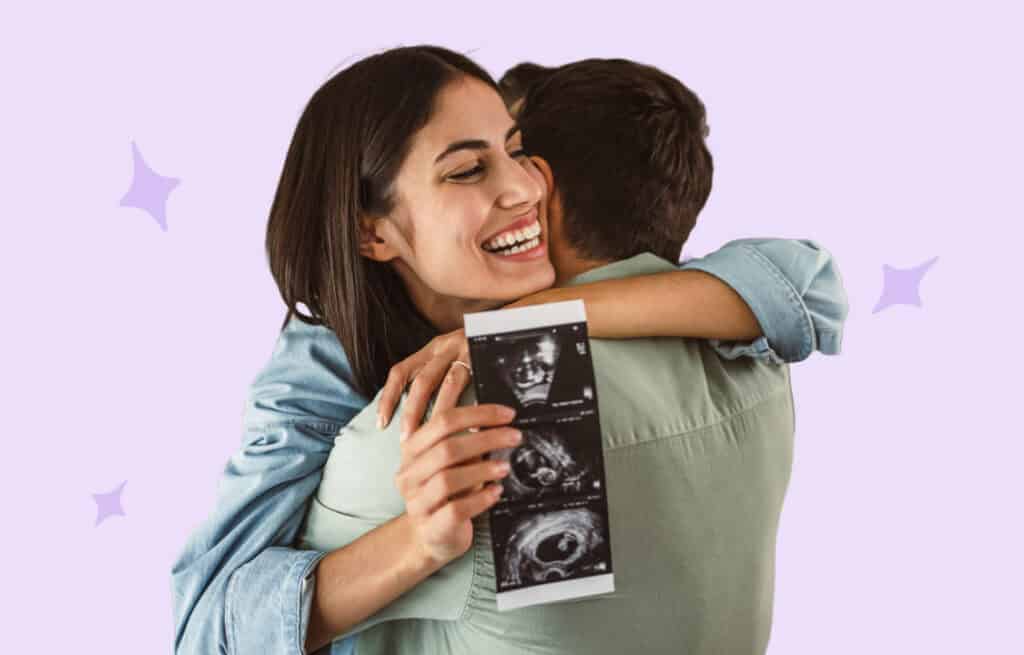
Learn how pregnancy after miscarriage may go in terms of fertility, timing, emotional and psychical recovery.
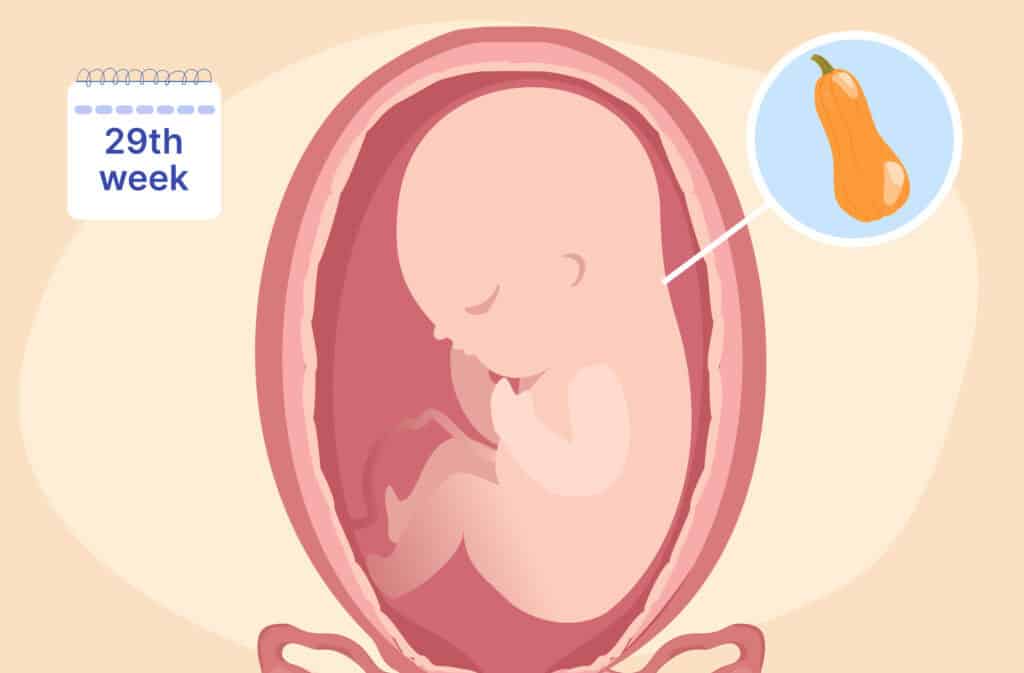
Discover what happens at 29 weeks pregnant, from baby development and symptoms to contraction tips and self-care advice.
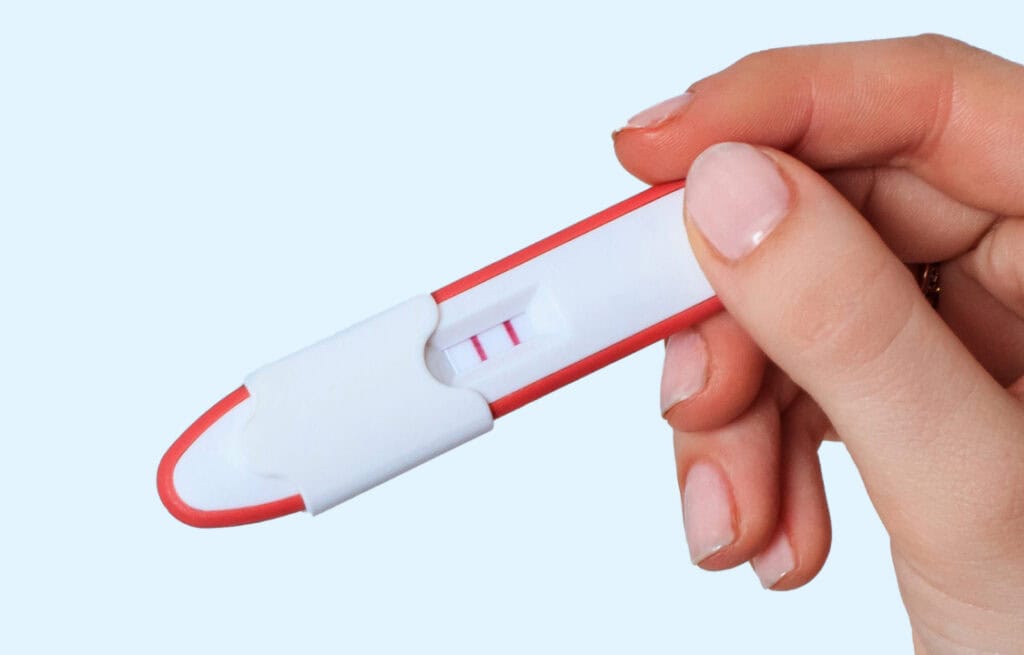
If I’m still having periods at 55, can I get pregnant? A perimenopause pregnancy is still possible, but much more complex than earlier in life.

